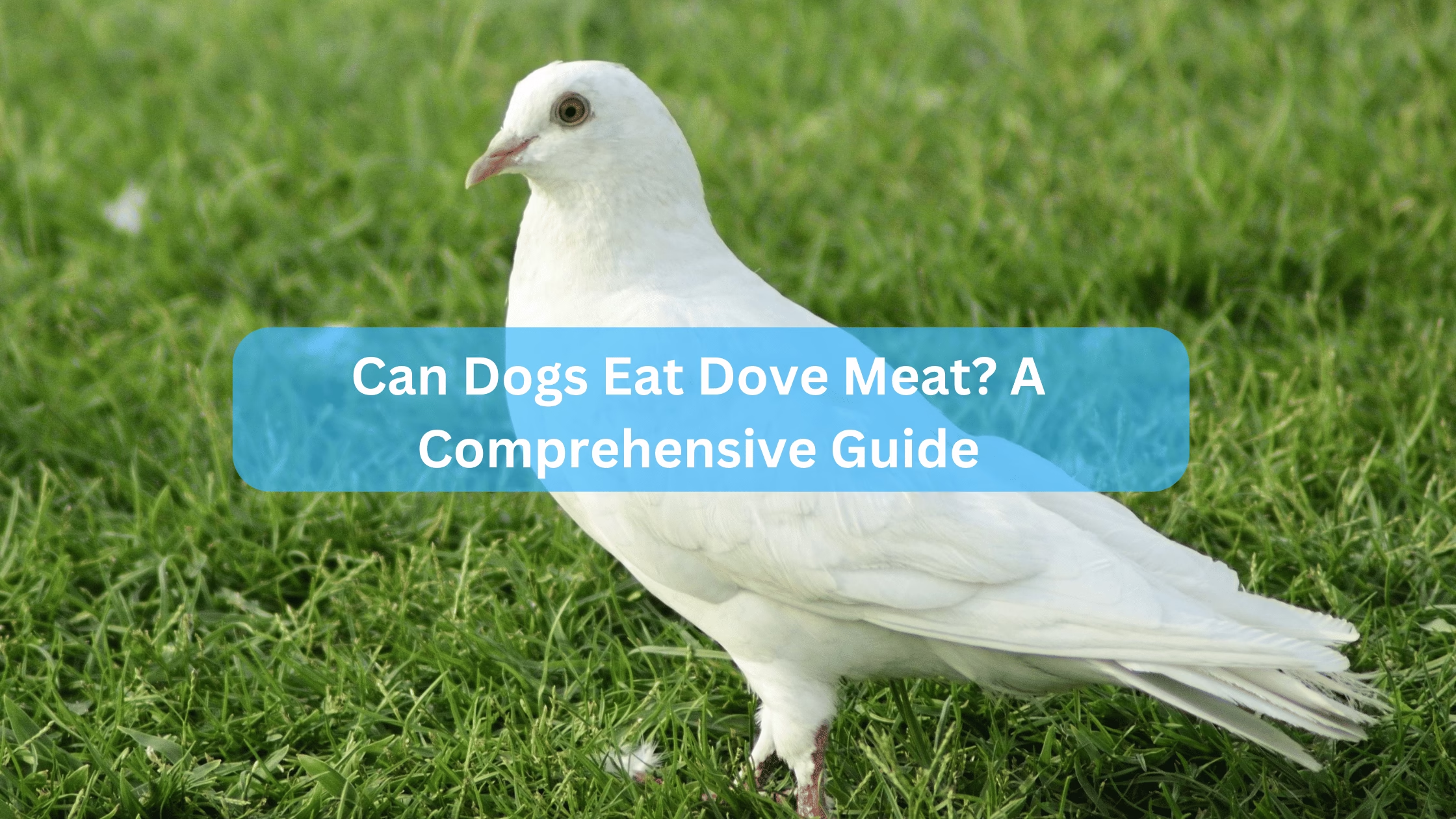Can Dogs Eat Dove Meat? Feeding your dog a varied diet is essential for their health and well-being. One question that often arises among pet owners is whether dogs can eat dove meat. This article explores the risks and benefits of feeding dove meat to dogs, compares it to other meats, and discusses potential digestive issues and signs of poisoning.
Can Dogs Eat Dove Meat?
Yes, dogs can eat dove meat, but it should be done in moderation and with caution. Dove meat is a lean source of protein that can be beneficial for dogs.
However, it is crucial to ensure that the meat is thoroughly cooked, free of small bones, and introduced gradually into your dog’s diet to avoid any adverse reactions.
Benefits of Feeding Dove Meat to Dogs
- High Protein Content: Dove meat is rich in protein, which is essential for muscle development and overall health in dogs.
- Low Fat: Compared to many other meats, dove meat is low in fat, making it a suitable option for dogs that need to maintain a healthy weight.
- Nutrient-Rich: Dove meat contains important vitamins and minerals, including iron and B vitamins, which support energy levels and overall vitality.
- Alternative Protein Source: For dogs with sensitivities or allergies to more common proteins like chicken or beef, dove meat can serve as a nutritious alternative.
Risks of Feeding Dove Meat to Dogs
While there are benefits, there are also risks associated with feeding dove meat to dogs:
- Choking Hazards: Dove bones can splinter and pose a choking risk. Always ensure that bones are removed before feeding the meat to your dog.
- Bacterial Contamination: Raw or undercooked dove meat can harbor harmful bacteria such as Salmonella or E. coli, which can lead to food poisoning in dogs. Always cook the meat thoroughly to eliminate these risks.
- Lead Poisoning: If the dove was hunted, there is a potential risk of lead poisoning from ingesting lead shot. Symptoms of lead poisoning include vomiting, diarrhea, and neurological issues.
- Digestive Issues: Introducing dove meat too quickly into your dog’s diet can lead to gastrointestinal upset, including diarrhea or vomiting. It’s best to introduce new foods gradually.
How Does Dove Meat Compare to Other Meats?
When comparing dove meat to other meats like chicken or beef, dove meat is generally lower in fat and can be a good source of protein.
However, the risks associated with dove meat, particularly regarding choking hazards and bacterial contamination, may be higher if not prepared correctly.
Chicken and turkey are often considered safer options due to their widespread availability and lower risk of contamination when cooked properly.
Signs of Poisoning in Dogs After Eating Dove Meat
If your dog consumes dove meat, be vigilant for signs of poisoning or distress, which may include:
- Vomiting
- Diarrhea
- Lethargy
- Abdominal pain
- Loss of appetite
- Neurological symptoms (in cases of lead poisoning)
If you observe any of these symptoms, contact your veterinarian immediately for guidance and potential treatment.
Also Read: Can Dogs Eat Ravioli? A Comprehensive Guide
Also Read: Can Dogs Eat Goose Meat? A Comprehensive Guide
Conclusion
Dove meat can be a nutritious addition to your dog’s diet when prepared and fed correctly. Always ensure that the meat is cooked thoroughly, free of bones, and introduced gradually to avoid digestive issues.
While there are benefits to feeding dove meat, it is essential to be aware of the potential risks, including choking hazards and bacterial contamination.
If you have any concerns about your dog’s health after consuming dove meat, consult your veterinarian for advice.
By following these guidelines, you can safely incorporate dove meat into your dog’s diet as an occasional treat while prioritizing their health and safety.
Sources:
- https://dogspotlight.com/can-dogs-eat-dove-meat-risks-and-benefits/
- https://www.candogseatit.com/meat-offal/pigeon
- http://gundogforum.com/forum/viewtopic.php?t=22045
- https://www.retrievertraining.net/threads/vet-question-dog-ate-whole-dove-breast.75168/
- https://wagwalking.com/wellness/what-are-the-symptoms-of-poisoning-in-dogs
- https://www.healthline.com/nutrition/human-foods-for-dogs
- https://highfieldsvet.com.au/toxic-and-hazardous-foods-for-your-pets/
- https://www.ncbi.nlm.nih.gov/pmc/articles/PMC10272007/







